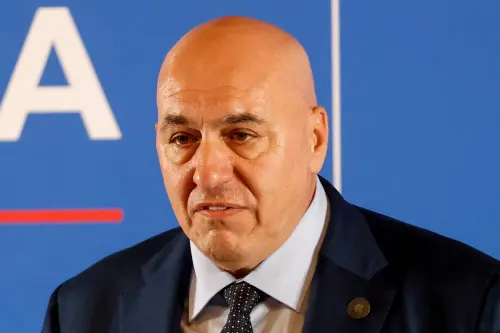Negotiations for a potential contract between satellite internet operator Starlink and the Italian government have stalled amid broader geopolitical tensions, according to Italy's Defence Minister.
Prime Minister Giorgia Meloni's administration aims to ensure encrypted communications for government officials, diplomats, and defense personnel operating in high-risk areas, and Starlink is a key contender for this service.
"It seems to me that everything has come to a standstill," Minister Guido Crosetto remarked, as reported by La Repubblica. He noted that discussions have shifted from technical aspects to commentary regarding Elon Musk, although he did not elaborate on those remarks.
Starlink, a leader in the industry with approximately 7,000 active low-orbit satellites, has been providing services in Italy since 2021. Reports suggest that Rome is considering a five-year contract worth about 1.5 billion euros with Musk's SpaceX group.
However, opposition politicians have raised concerns about awarding a national security contract to a foreign businessman closely linked with former U.S. President Donald Trump. Although Meloni has prioritized her alliance with the United States in Italy's foreign policy, Trump's actions have caused friction with Rome's European allies, complicating her position.
Domestically, Meloni faces pressure from her coalition partner, the far-right League, to continue supporting Trump and Musk. Recently, the League leader and Meloni's deputy, Matteo Salvini, expressed his admiration for American capabilities in satellite communications after a conversation with U.S. Vice President JD Vance.
Crosetto indicated that discussions could resume on a technical level once tensions ease, emphasizing that the primary concern is determining what is most beneficial and secure for the country. He described Musk as a "visionary genius" in the same interview.
Andrea Stroppa, Musk's representative in Italy, stated that it would be advantageous for Italy and its European partners to develop independent satellite infrastructure for low-orbit telecommunications, but noted that Starlink might be the best option in the short term. "In the next 3-5 years, there's an operational necessity that should be fulfilled," he said during a live interview on X. He also mentioned that Crosetto had visited SpaceX facilities in the U.S.
